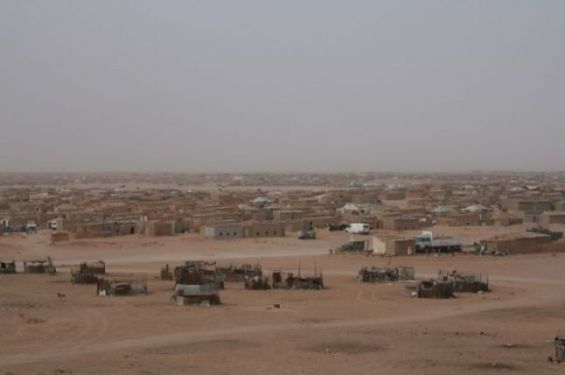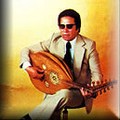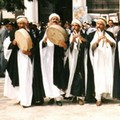Thousands of Sahrawis have been living in the Tindouf camps since the 1970s, divided into five camps, and are often considered a bargaining chip by Algeria and the Polisario in front of the international community, as part of their effort to establish a sixth state in the Maghreb region on the land of Western Sahara.
While Morocco refers to them as «Sahrawis detained in camps of shame», Algeria claims they are «refugees fleeing Moroccan oppression» and uses its support for the Polisario Front, which manages the camps, to pursue political goals in its quest for regional leadership.
Most countries hosting refugees aim to make their stay temporary, pressuring the international community to repatriate them and end their suffering. Algeria, however, does the opposite—it actively seeks to keep the Sahrawis in the camps and assists the Polisario in controlling those who enter and exit, fearing that a final departure would weaken both Algeria’s and the Polisario's political standing.
Are they refugees?
After World War II, global powers agreed to create an organization under the UN's supervision to protect refugees and support their voluntary return, integration, or resettlement. This body became the United Nations High Commissioner for Refugees (UNHCR), which manages refugee census operations and ensures their rights, including freedom of movement, education, and work.
Most countries worldwide, including Algeria, have signed the Convention relating to the Status of Refugees and the Protocol relating to the Status of Refugees. These two documents define how the Commission operates and establish the criteria for determining who qualifies as a «refugee».
The Convention and Protocol outline the rights of refugees, including freedom of belief, freedom of movement, the right to education, the right to travel documents, and the right to work...
As a signatory of the Refugee Convention and its Protocol, Algeria is obliged to cooperate with the UNHCR, particularly in facilitating census operations. Article 2 of the protocol reads that «the States Parties to the present Protocol undertake to co-operate with the Office of the United Nations High Commissioner for Refugees, or any other agency of the United Nations which may succeed it, in the exercise of its functions, and shall in particular facilitate its duty of supervising the application of the provisions of the present Protocol».
However, Algeria has consistently evaded its responsibility, refusing to allow the UNHCR to count the Tindouf camp population, ignoring multiple UN Security Council resolutions demanding it. The most recent resolution in October 2023 reiterated the need for a census of the camp population.
Algeria argues that the «only permanent solution to end Sahrawi suffering» is their «voluntary return to Western Sahara, based on a full implementation of the UN's peace plan, which includes a right to self-determination». Algeria maintains that «this plan incorporates the population census and should not be confused with the usual refugee census processes».
Algeria also violates international law by delegating camp management to the Polisario, instead of fulfilling its responsibilities as the host country. Moreover, according to international law, refugees must be civilians, while the Polisario maintains an armed militia, the «Sahrawi Liberation Army».
How many are they?
Due to Algeria's refusal to count the population of the Tindouf camps, the United Nations estimates the number at 90,000—a figure that angers Algeria and the Polisario Front, both of which reject this estimate and claim the actual number of camp residents is much higher.
Last year, during an intervention at the 74th session of the Executive Committee of the United Nations High Commissioner for Refugees, Algeria urged the UN agency to adjust aid provisions to reflect the «real number» of Sahrawi refugees, which «far exceeds the 90,000 figure used as the basis for calculating aid». Algeria called for the adoption of «the joint study conducted by the World Food Program, UNICEF, and UNHCR», which estimated the number of Sahrawi refugees in Algeria at 173,600.
The Algerian government had previously estimated their number at 165,000 on another occasion. Despite this, UN agencies continue to use the figure of 90,000 «until the registration process is completed», while acknowledging that the camp residents rely «primarily on humanitarian aid and have little opportunity for self-sufficiency, given the limited income-generating activities».
Attempts to inflate the camp population date back to the early stages of the conflict. A U.S. State Department document, issued on December 16, 1977, notes that «The number of refugees from the Western Sahara is greatly inflated by the Polisario». It adds that «A 1974 Spanish census determined that there were only 74,000 indigenous Saharans in all of the Spanish Sahara», while Algeria and the Polisario publicly claimed that «there are over 100,000 refugees from the Western Sahara». The document concludes that «the steadfast refusal of Algeria to permit an accurate survey of the numbers and origin of the population gathered in the camps around Tindouf makes these claims suspect».
Who are they, and where did they come from?
Algeria and the Polisario Front promote the idea that the Tindouf camp residents fled Western Sahara out of fear of the brutality of the so-called Moroccan «occupation forces», seeking safety and protection. However, this narrative is refuted by other international bodies, which confirm that the camps house Sahrawis from Algeria and Mauritania, alongside those originally from Western Sahara.
The U.S. State Department's 1977 document notes that «a large percentage of those Saharans grouped in camps in Algeria are not from the former Western Sahara». The same document adds that «the refugee camps there also contain a significant number (conceivably even a majority) of Saharans who arrived from other areas of the desert (Algeria, Mauritania, Mali, and even Morocco), either to escape the Sahel drought or because Algerian and Polisario spokesmen induced them to come».
The document explains that «the nomadic nature of the Saharans, who traditionally have disregarded national boundaries, makes the population in the area fluctuate widely, depending on seasonal and climatic conditions. It is clear, however, that in the past two years Algeria and the Polisario have gathered a body of perhaps 30,000 to 80,000 Saharans capable of demonstrating impressively before foreign observers their desire for freedom and a return to a Saharan ‘homeland’».
The document also highlights that «Polisario leaders, at least some of whom are leftist dissidents from Mauritania and Morocco, are ideological allies of Algeria».
To ensure loyalty to the separatist cause, the document asserts that Algeria and the Polisario work together to «indoctrinate» the camp population. These refugees, «grouped into 20–30 camps, are undergoing political and military training aimed at preparing them to return to an independent Saharan state».
Additionally, many Tindouf camp residents of Mauritanian origin still maintain ties to their home country and are keen to participate in elections. In 2013, around 6,000 Sahrawis from the Tindouf camps were invited to take part in Mauritania's parliamentary and municipal elections.
Hamada Al-Bihi, president of the Sahrawi League for Democracy and Human Rights, who spent nearly 40 years in the Tindouf camps, previously stated that «less than 20% of the camp population comes from Laayoune, Smara, or Boujdour. The rest are Tuaregs and citizens from neighboring countries such as Mauritania, Mali, Niger, and Chad».




 chargement...
chargement...












